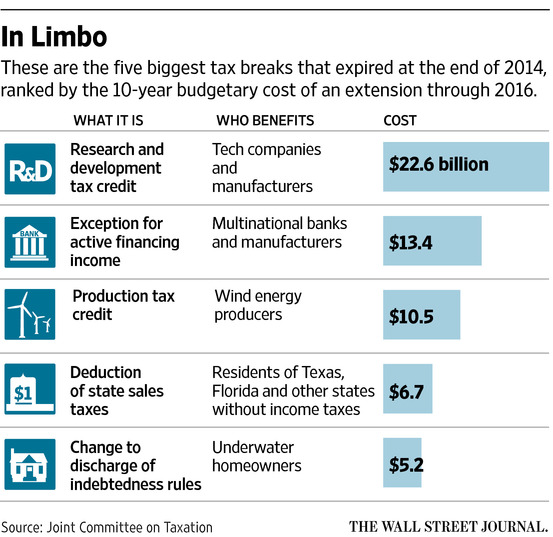Maya MacGuineas: To Keep Expiring Tax Cuts, Congress Considers Another Borrowing Bonanza
Maya MacGuineas, president of the Committee for a Responsible Federal Budget, wrote a commentary that appeared in the Wall Street Journal Washington Wire. It is reposted here.
Congress is contemplating massive borrowing for a year-end bonanza that would make permanent a number of expiring tax cuts. The price tag? $700 billion over the next decade. And this is on top of a year in which Congress already added $245 billion to the debt.

How do we explain to our children that we borrowed more than $1 trillion—counting interest—not because it was a national emergency or to make critical investments in the future but because we just don’t like paying our bills? Oops?
The U.S. fiscal picture doesn’t justify carefree borrowing. The Obama administration likes to emphasize that deficits have narrowed, but this year’s deficit is still more than $400 billion. And the deficit is projected to start growing again, quickly, in two years. The national debt is a whopping 74% of the U.S. economy–the highest level it has been other than during World War II and twice the historical average
Yet in the past few years, Congress has borrowed for business tax breaks, highway spending, higher payments to doctors in Medicare, and more
When it came to fixing the “doc fix,” plenty of options to pay for the change were available, such as modernizing Medicare’s cost-sharing structure and reducing overpayments to hospitals and nursing homes. Instead, lawmakers ignored two-thirds of the bill’s price tag and expanded the debt by $140 billion this decade. The sequester relief deal? More gimmicks and a $50 billion price tag. Last week’s bailout of the highway trust fund tacked on an additional $50 billion by resorting to gimmicks, instead of increasing the gas tax or otherwise aligning transportation spending and revenue
And now, tax cuts. Most of the extensions under consideration are sensible enough policy–and their merit is an argument for paying for them. There are plenty of options: closing egregious loopholes such as carried interest, improving tax compliance, all-out tax reform. If lawmakers need a little extra time (even though this deadline has been known for a full year), Congress could extend the tax breaks for one year while developing a comprehensive plan to reform the tax code
All this borrowing chips away at the progress Congress and the president made with their recent mini-budget deals. While far from ideal—the “fiscal cliff” deal that saved $800 billion relied on increasing tax rates instead of reforming the tax code, and the sequester that saved $900 billion focused almost entirely on the discretionary portion of the budget when the problems lie in mandatory spending—it took quite a lot to get even those deals done. Now Congress is poised to give back the bulk of that progress. Instead of building on those small steps to get control of the debt, we would backslide
Achieving bipartisan agreement on paying for things is difficult enough when Republicans favor spending cuts and entitlement reform and Democrats favor tax increases. But the current situation is worse than the usual reluctance to compromise
This year, Republicans agreed to increase discretionary spending by $110 billion but paid for only half that amount. In the 11 months they have controlled Congress, Republicans haven’t passed any significant stand-alone entitlement reforms to reduce spending. They just joined with Democrats to repeal one of the few entitlement changes that had been made, to crop insurance
Meanwhile, Democrats argue that we need new revenues yet are standing behind this plan to cut taxes by $700 billion. Sixty percent of that would go to businesses. Why would they support borrowing for corporate tax cuts over help for, say, and critical new public investments?
As the election approaches, a big budget deal is almost surely out of reach. But surely lawmakers on both side of the aisle could do more than continue to duck hard choices and add to the debt like it will never come due.
"My Views" are works published by members of the Committee for a Responsible Federal Budget, but they do not necessarily reflect the views of all members of the committee.


